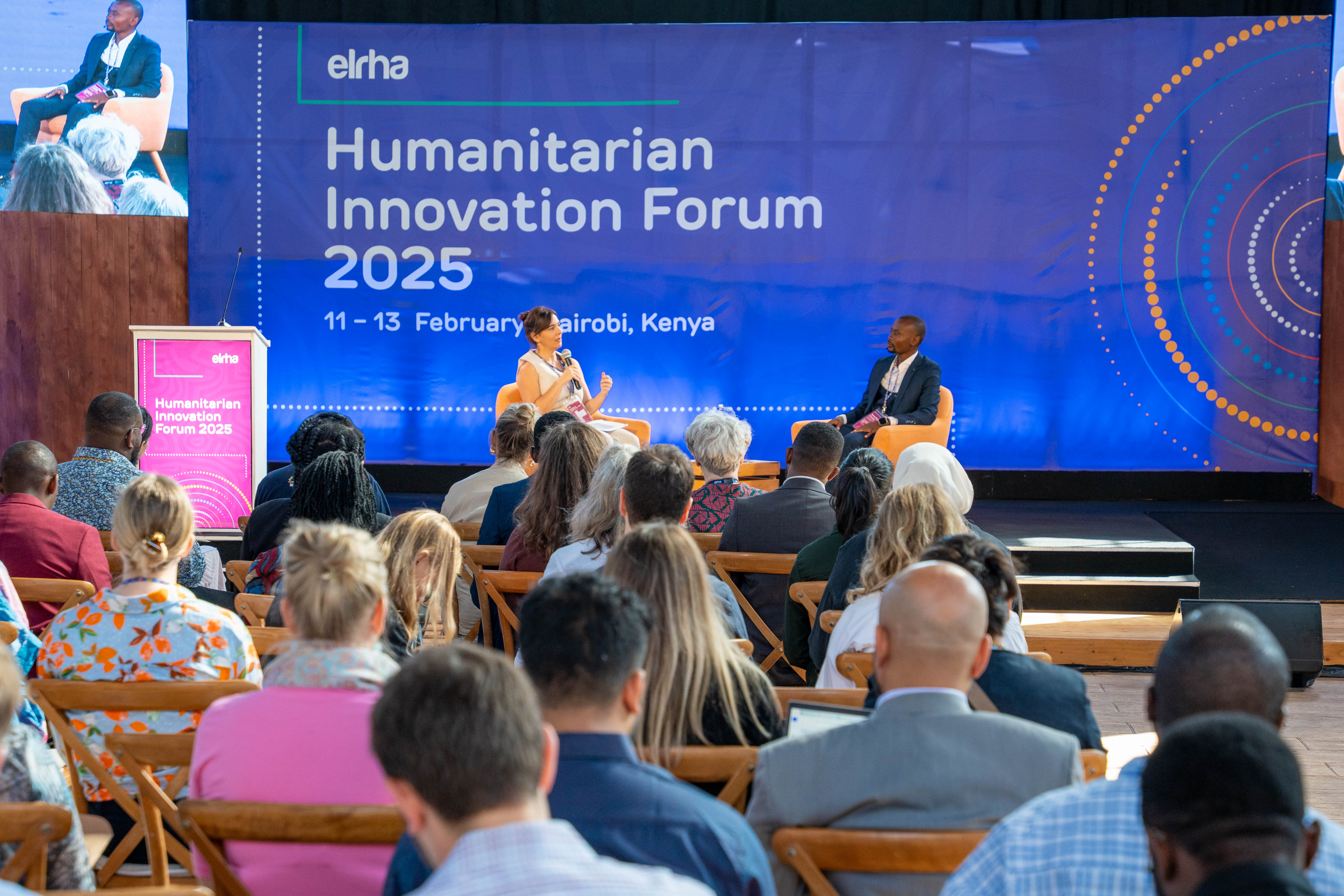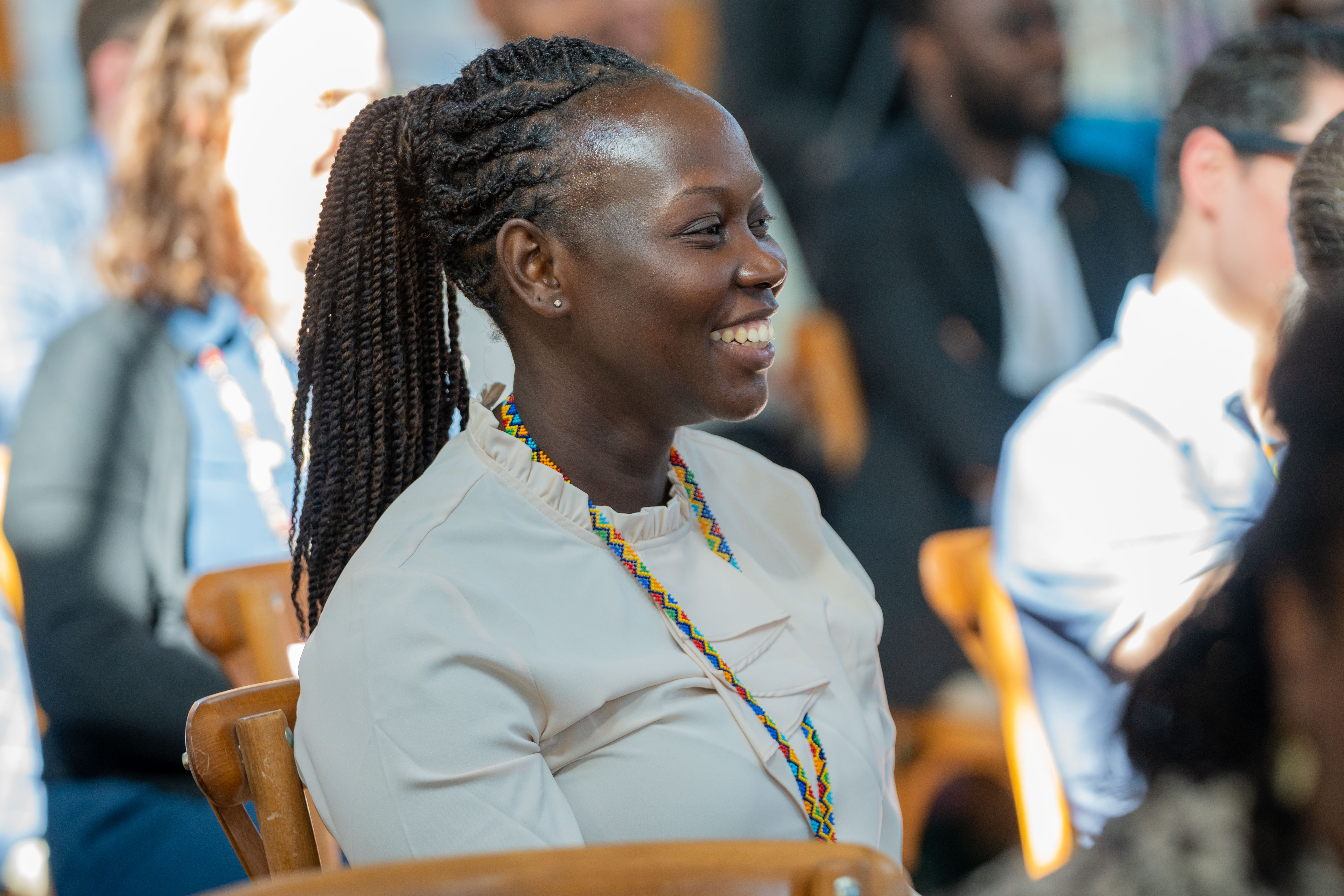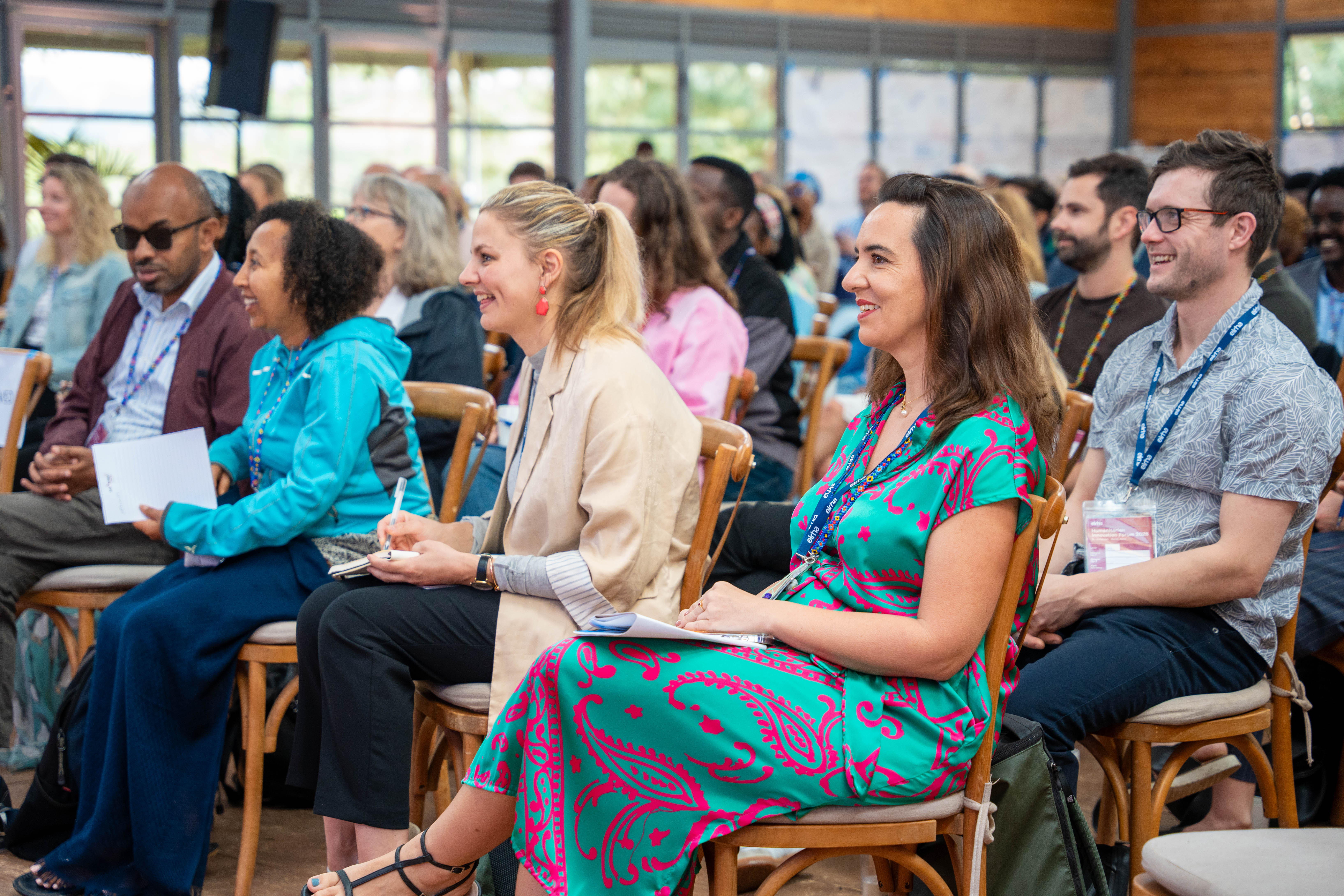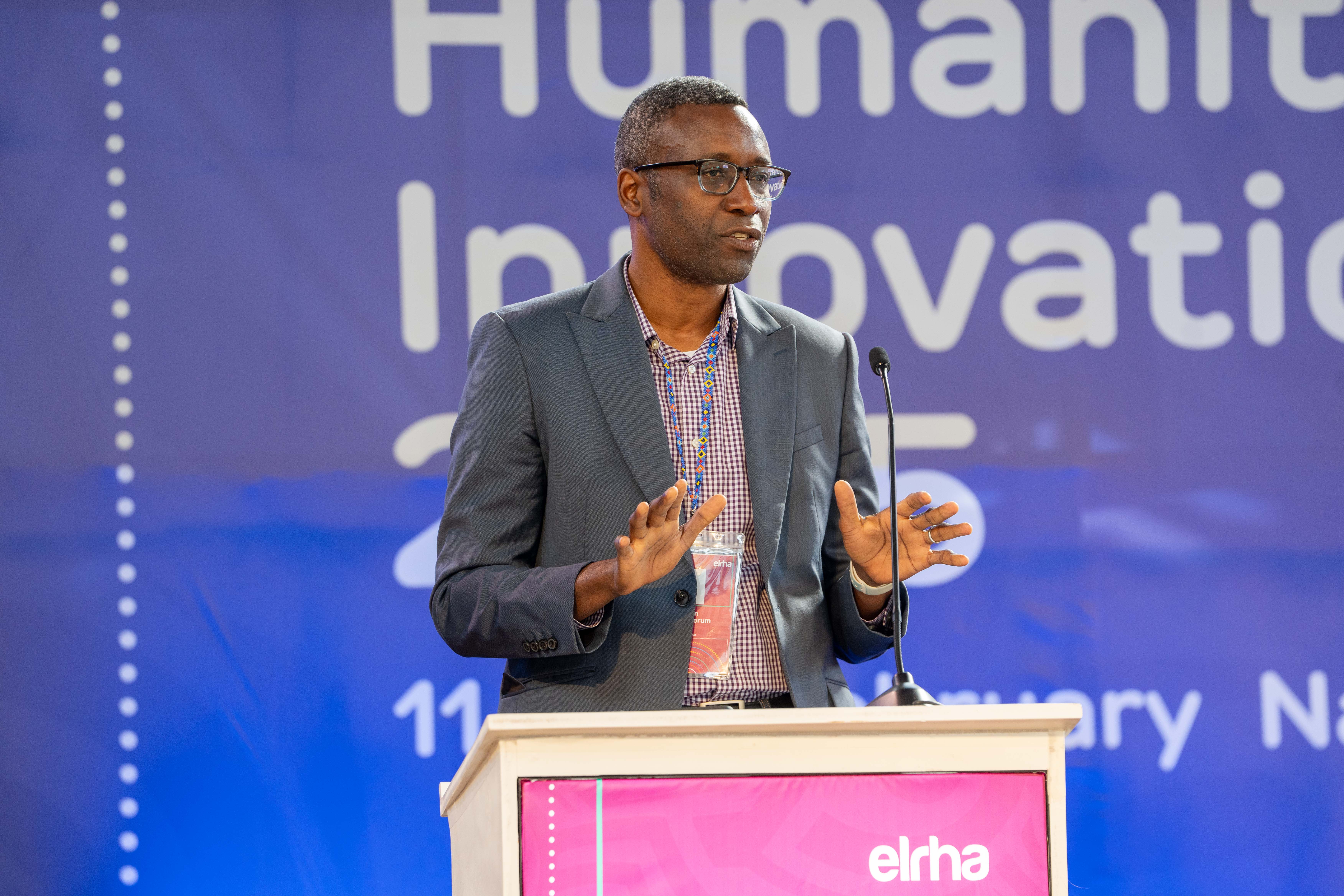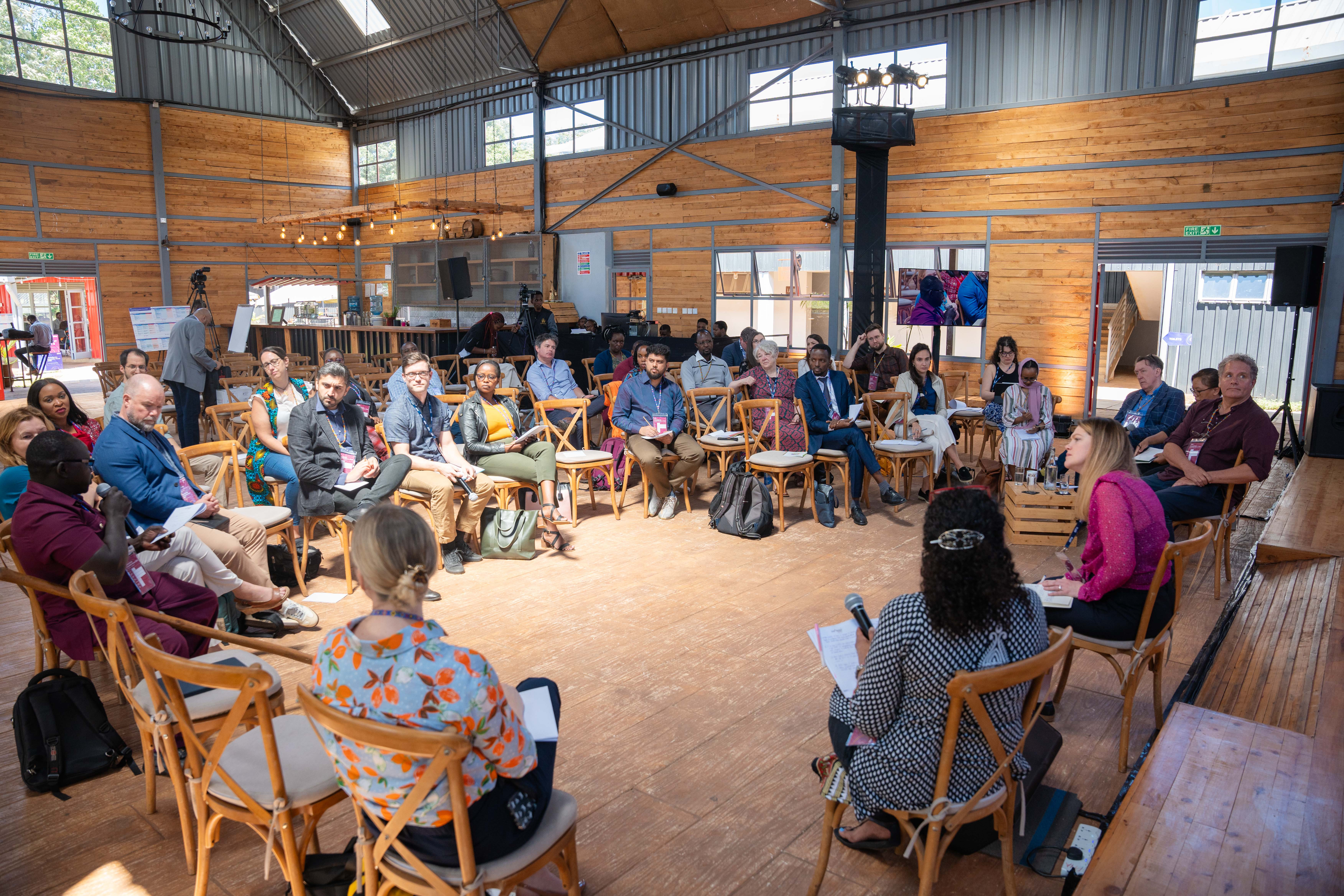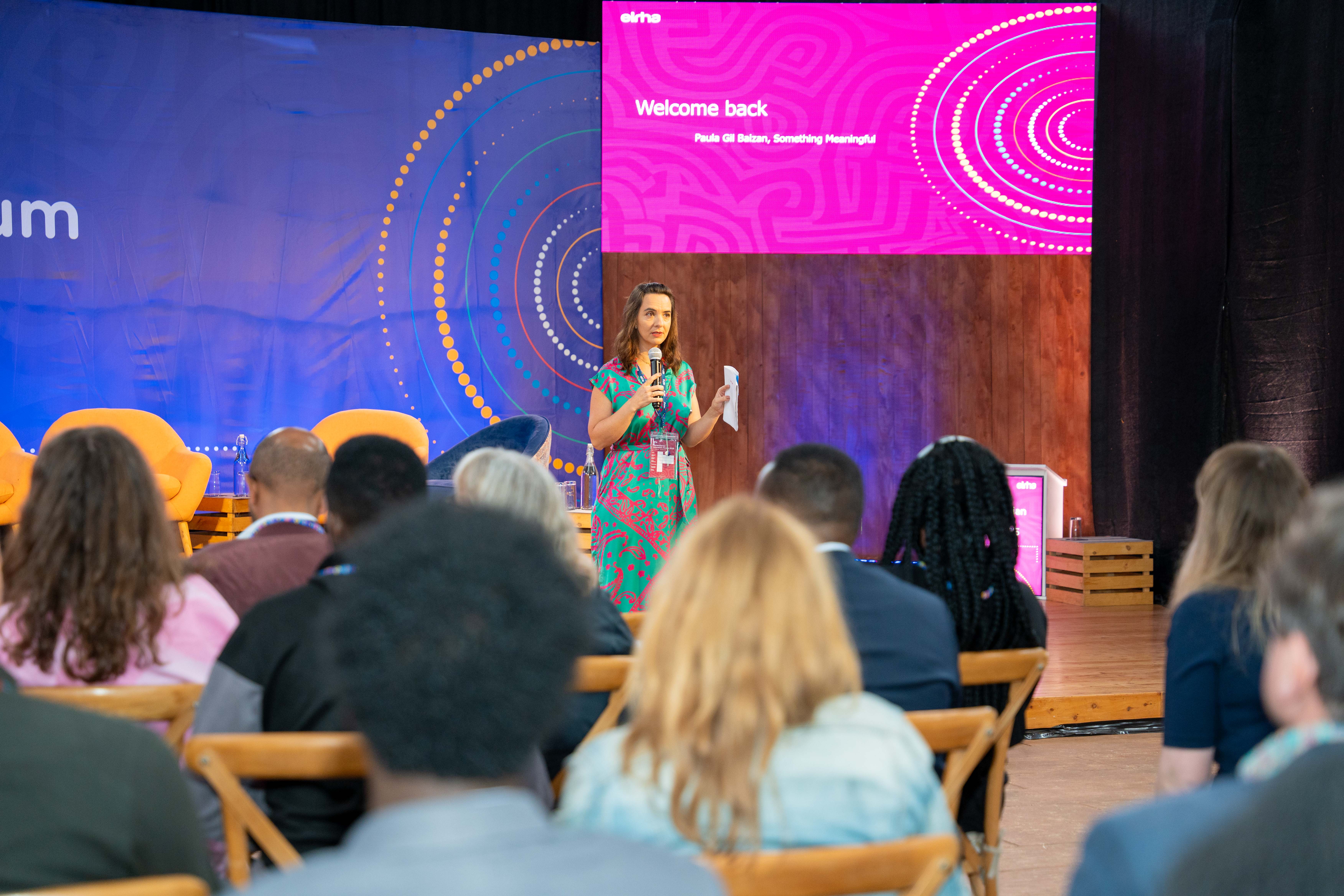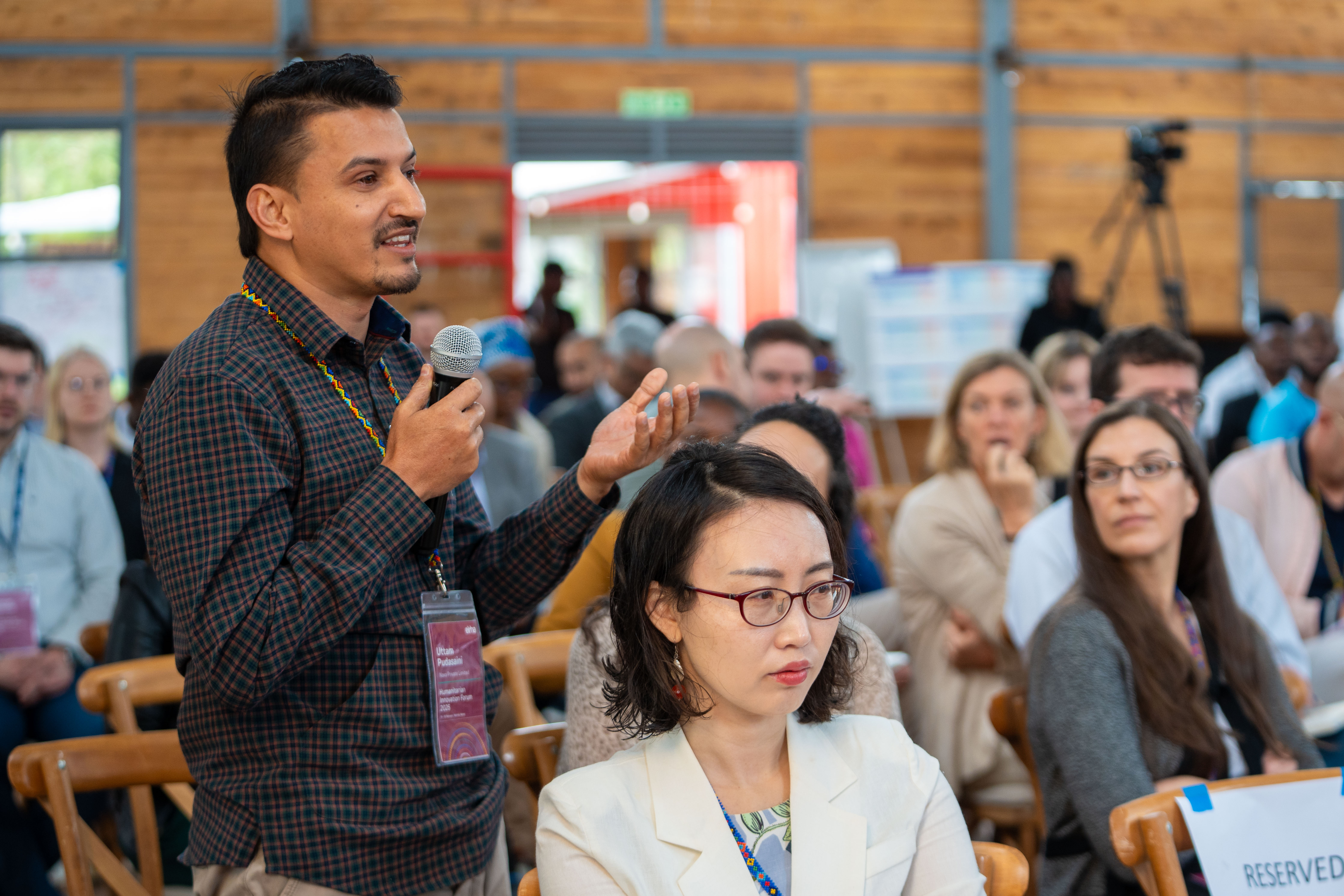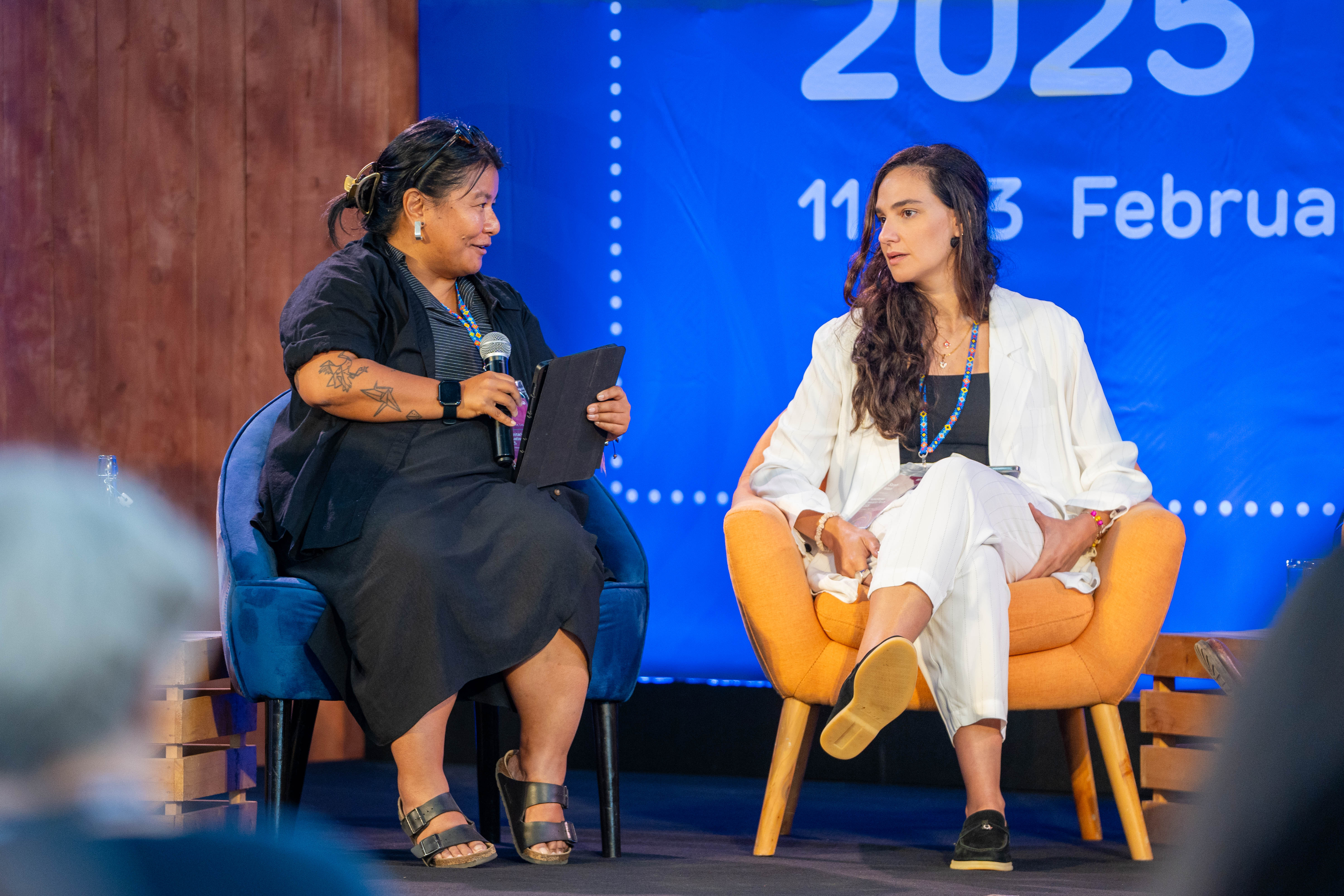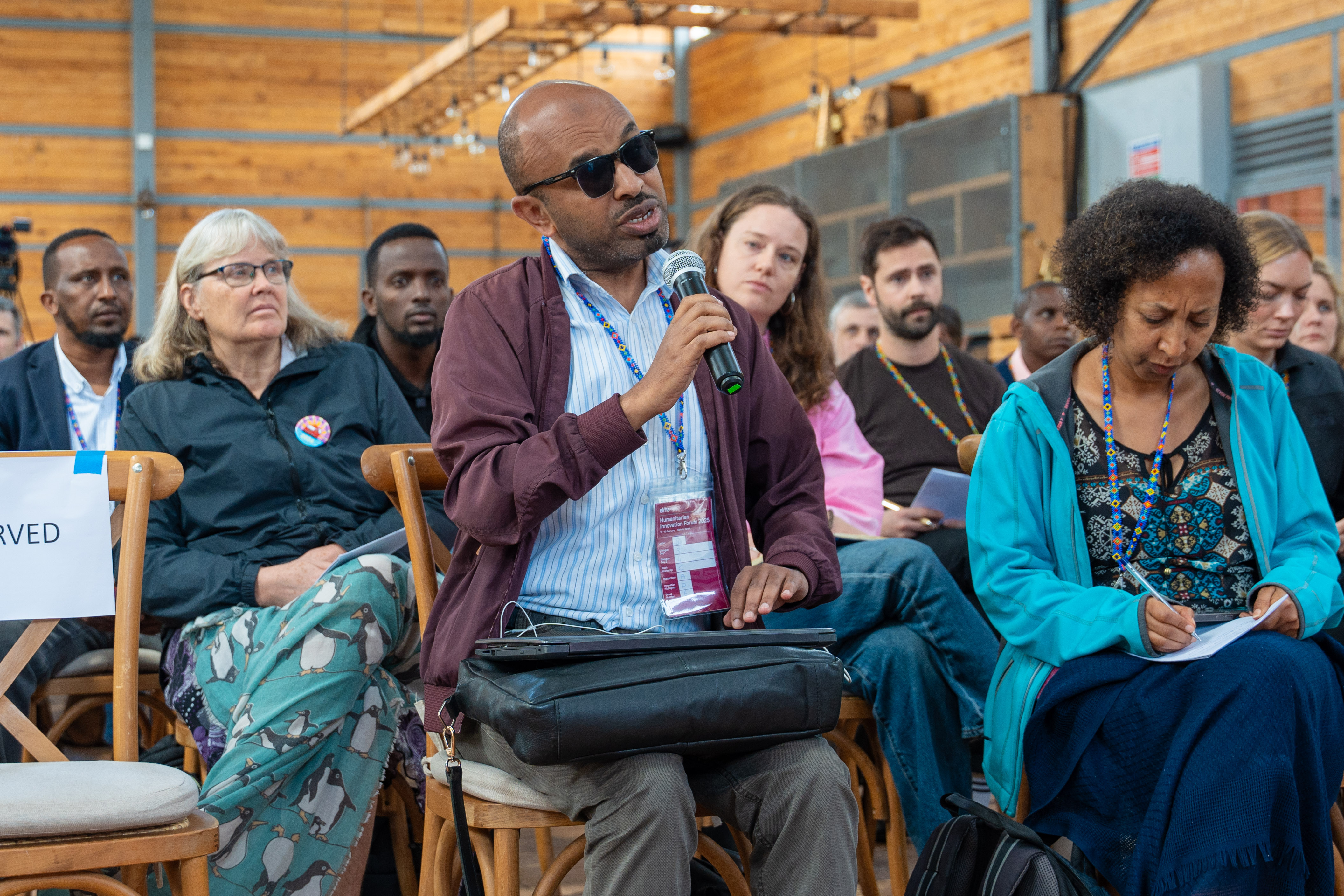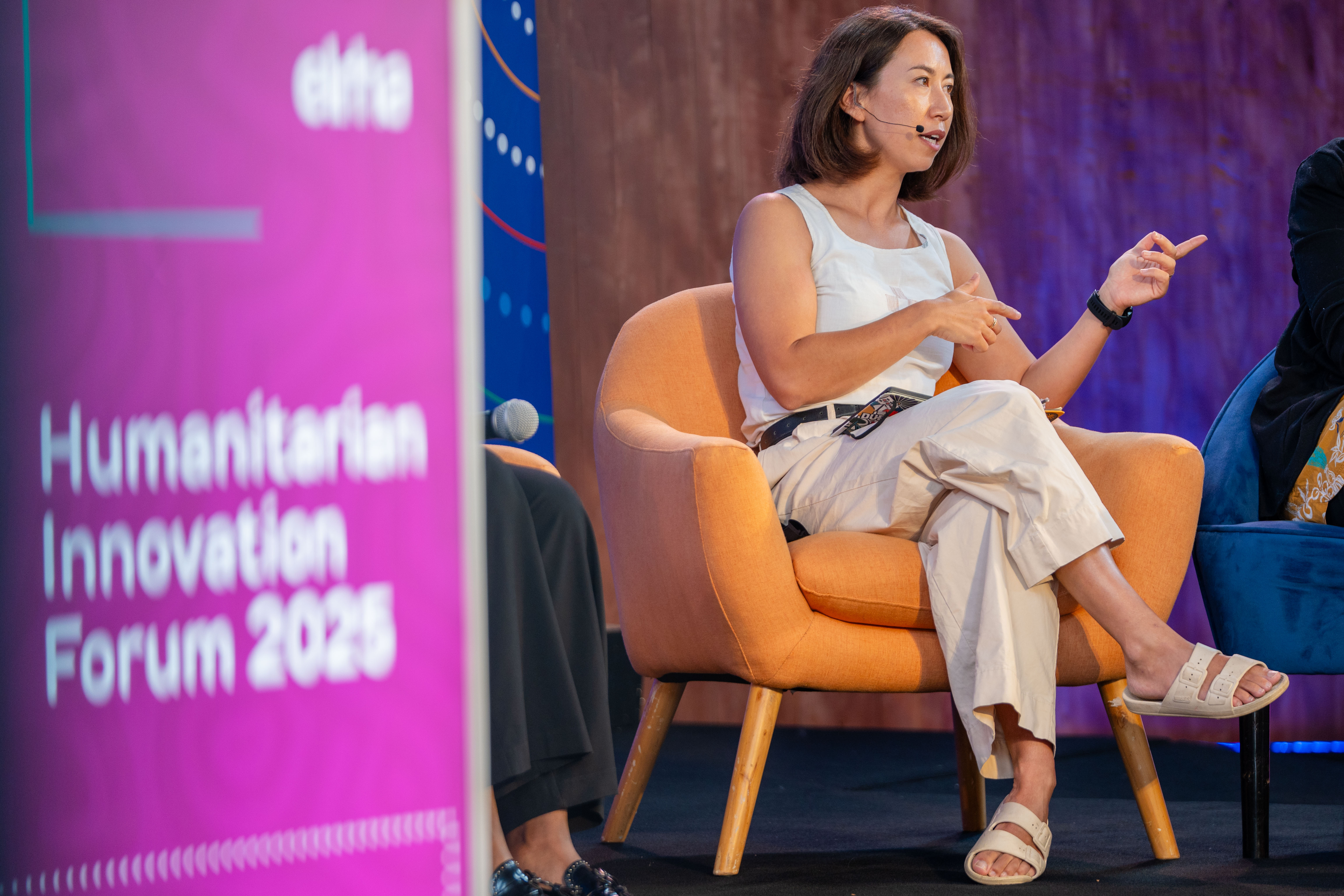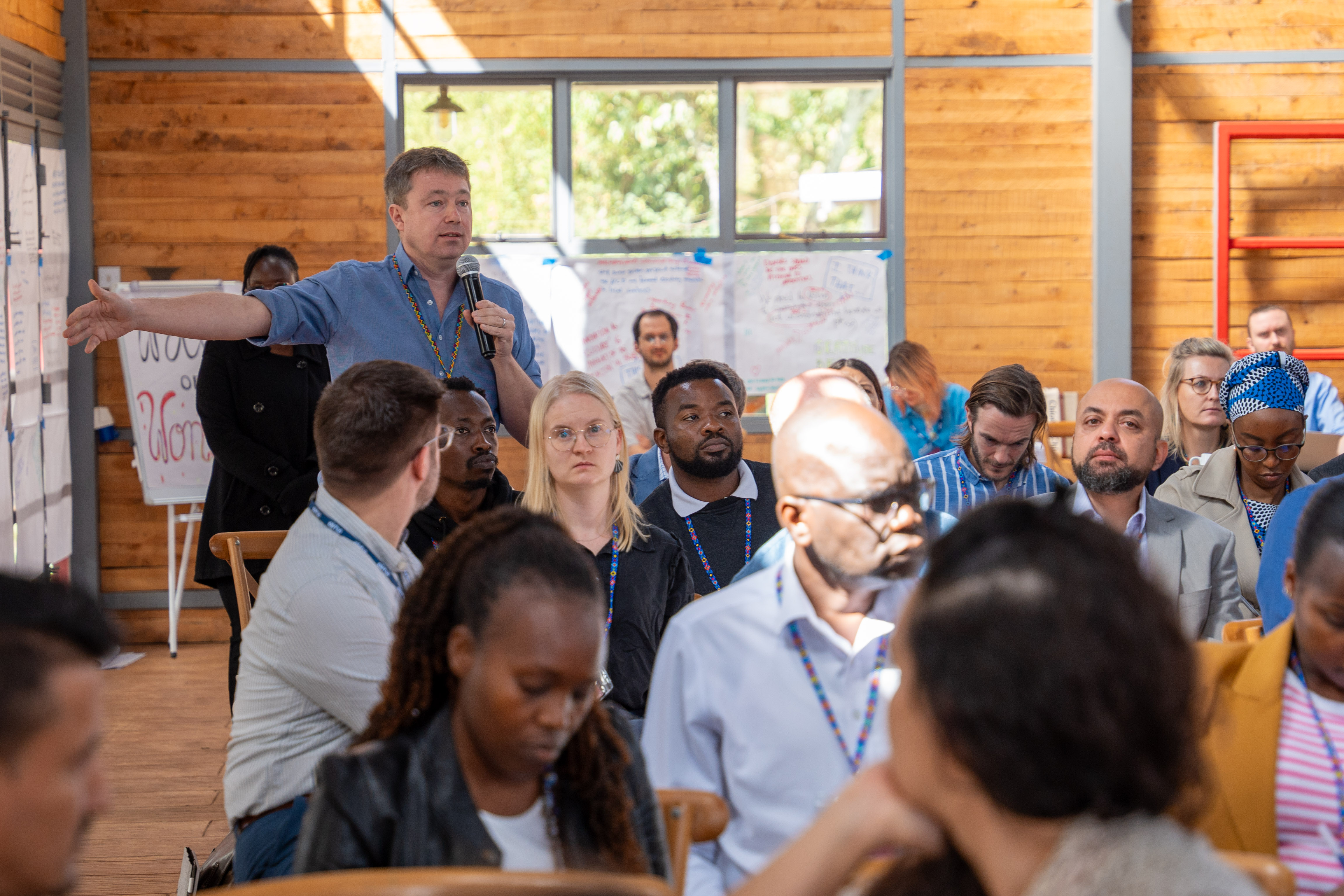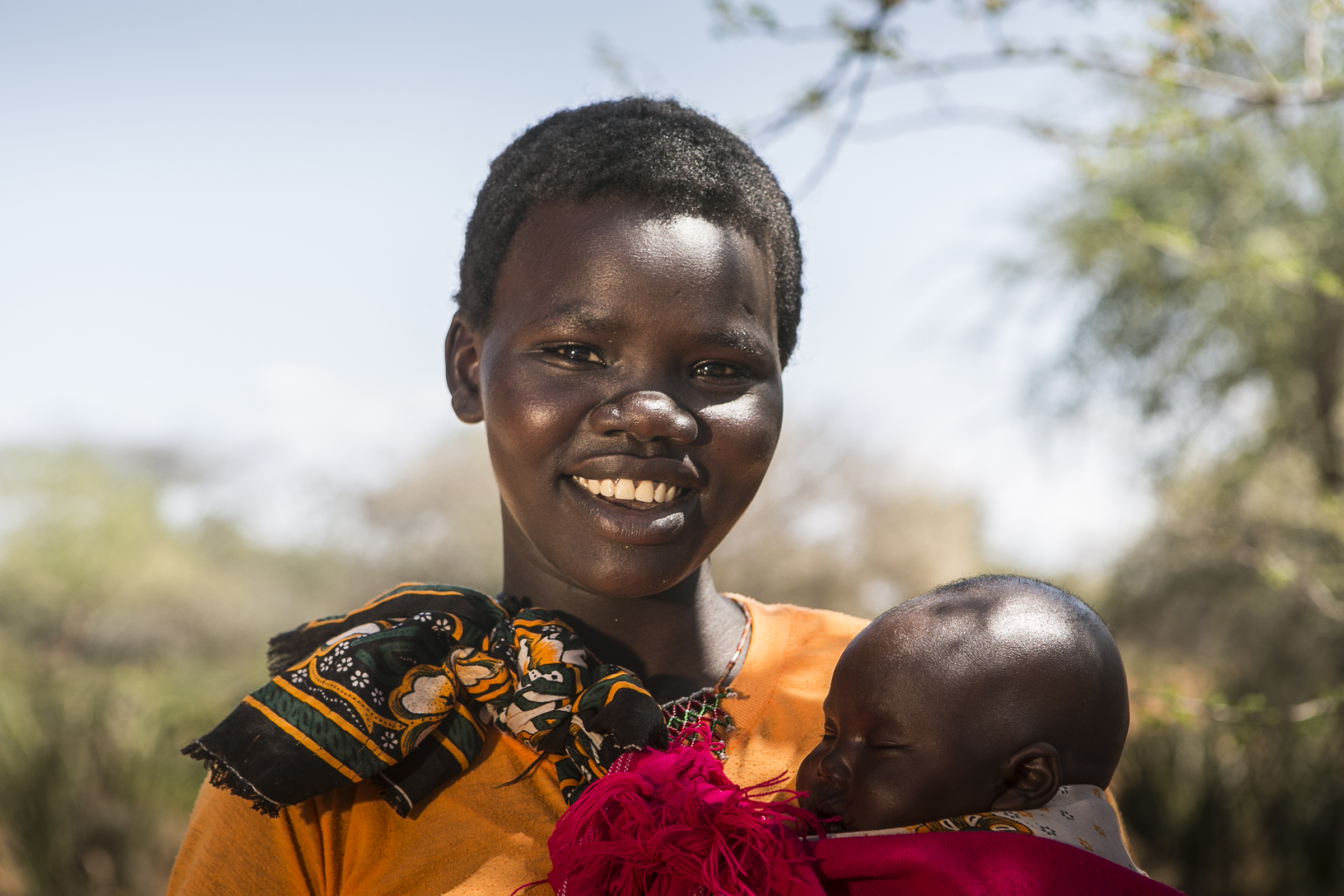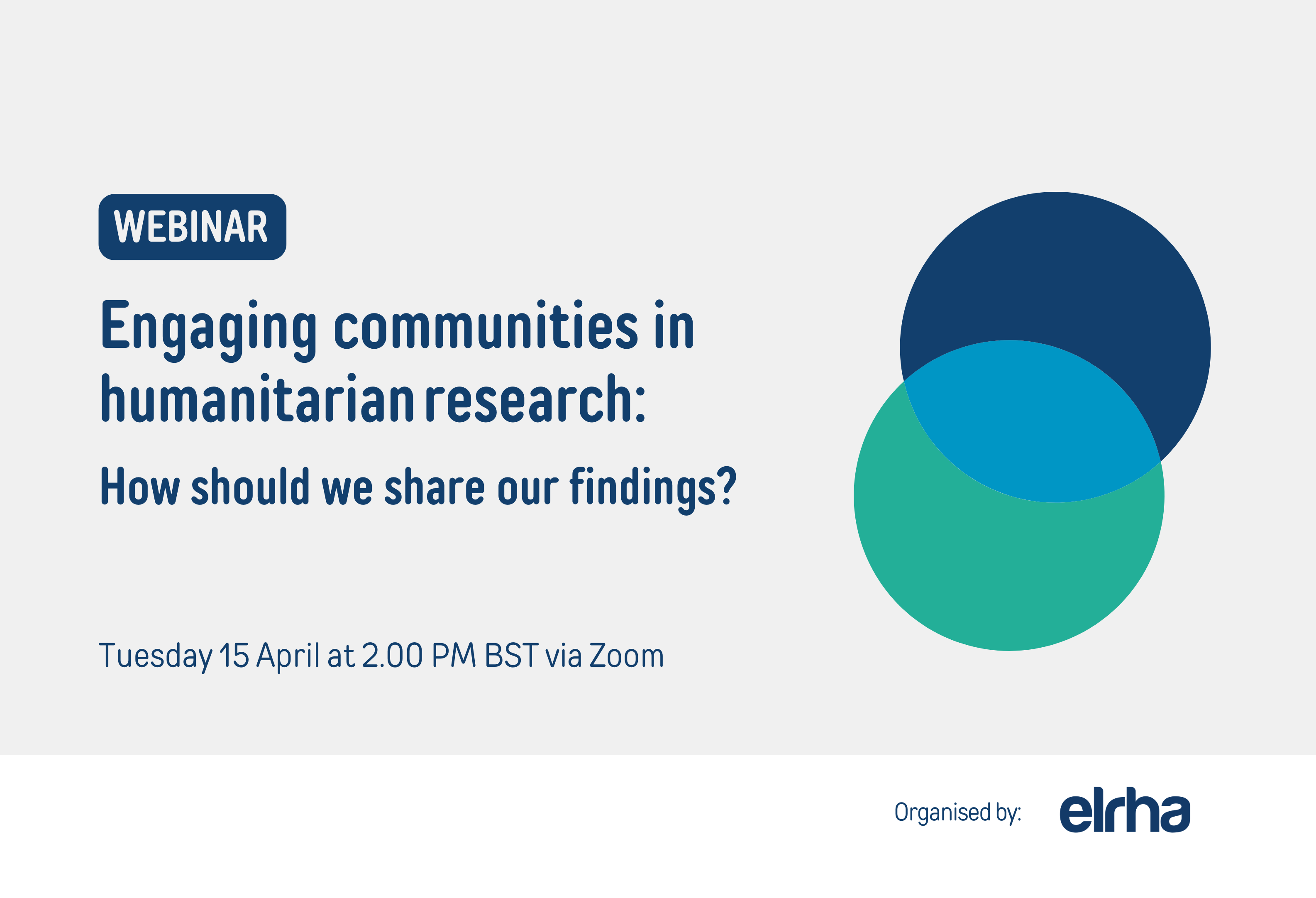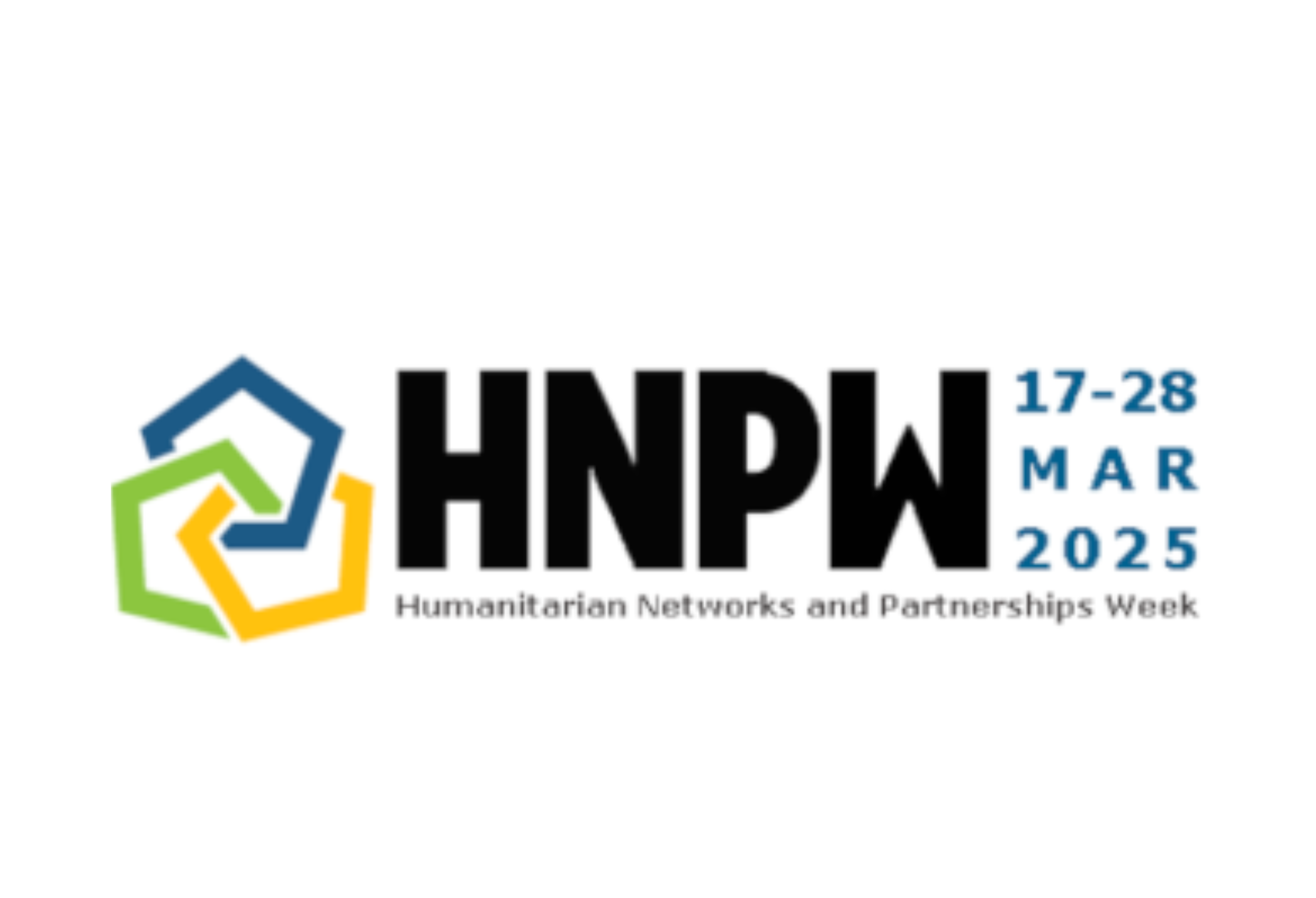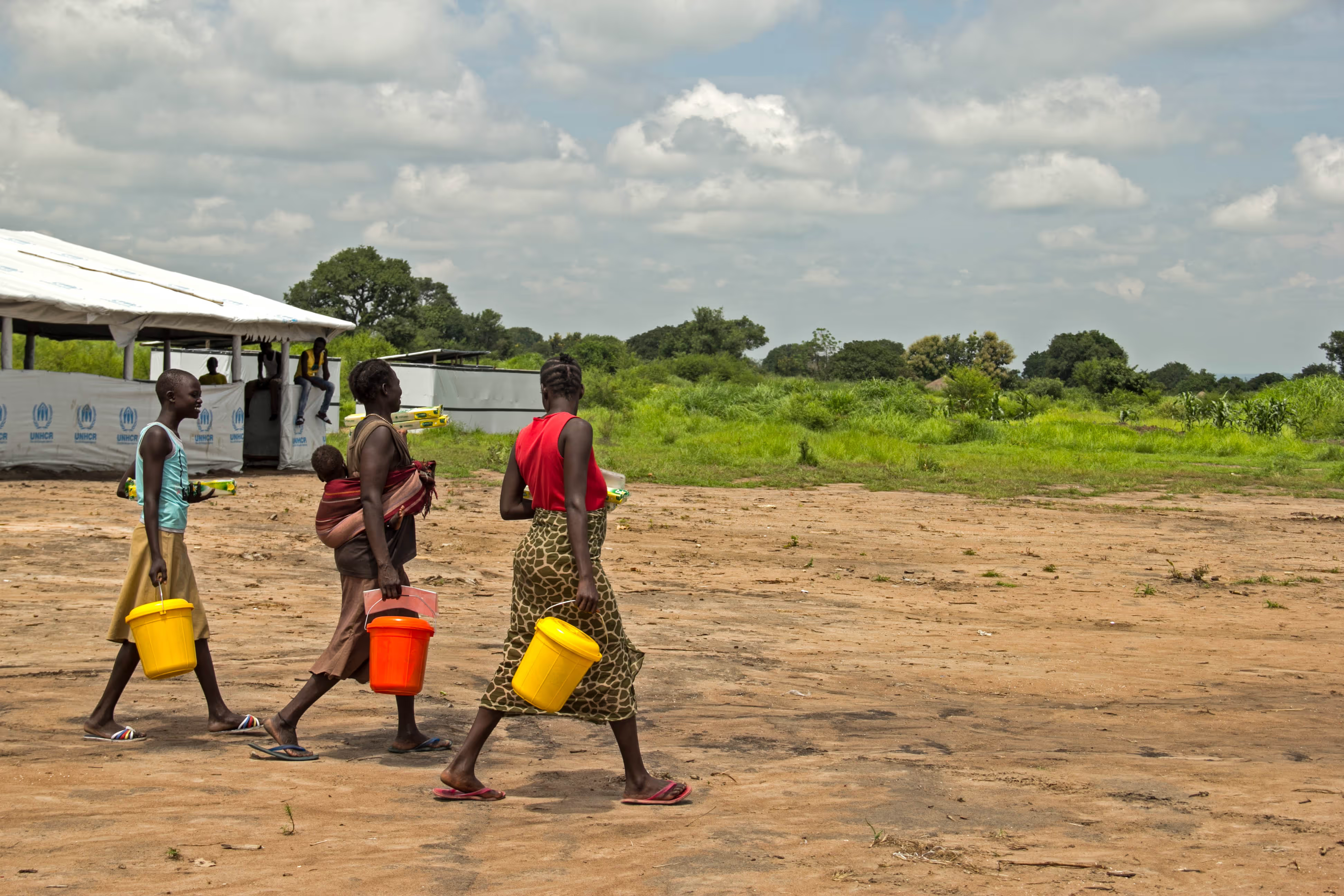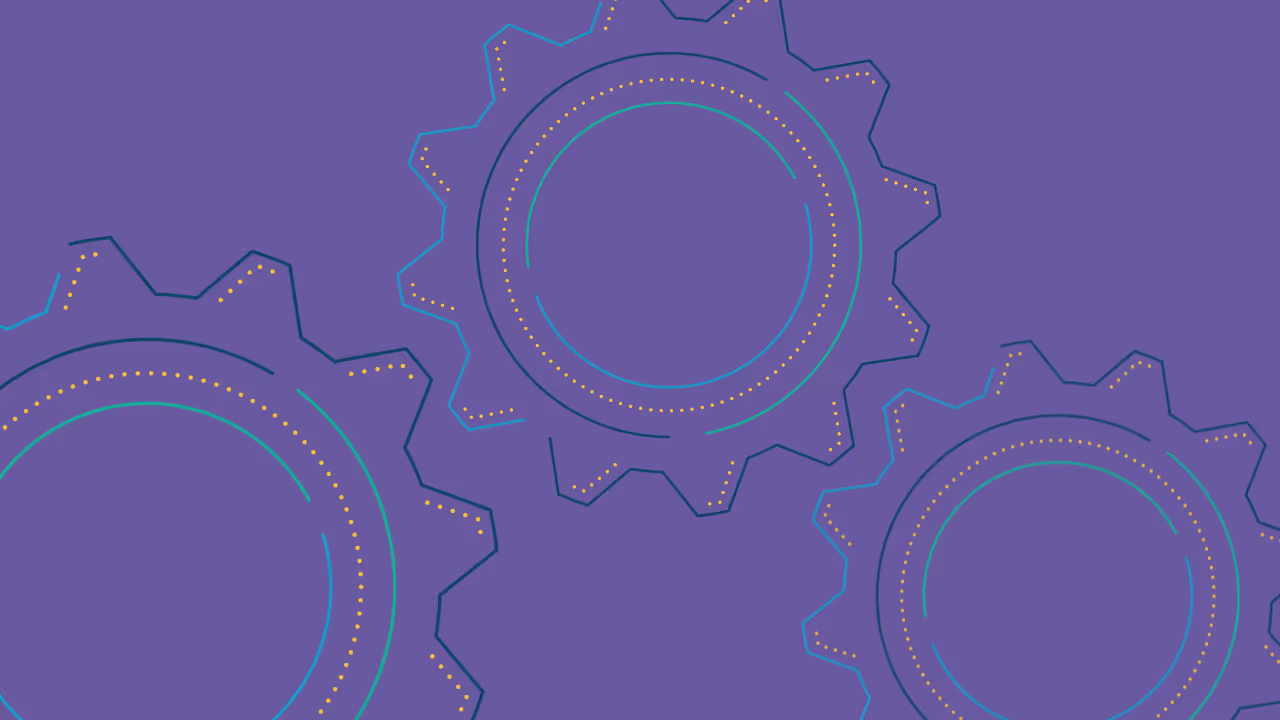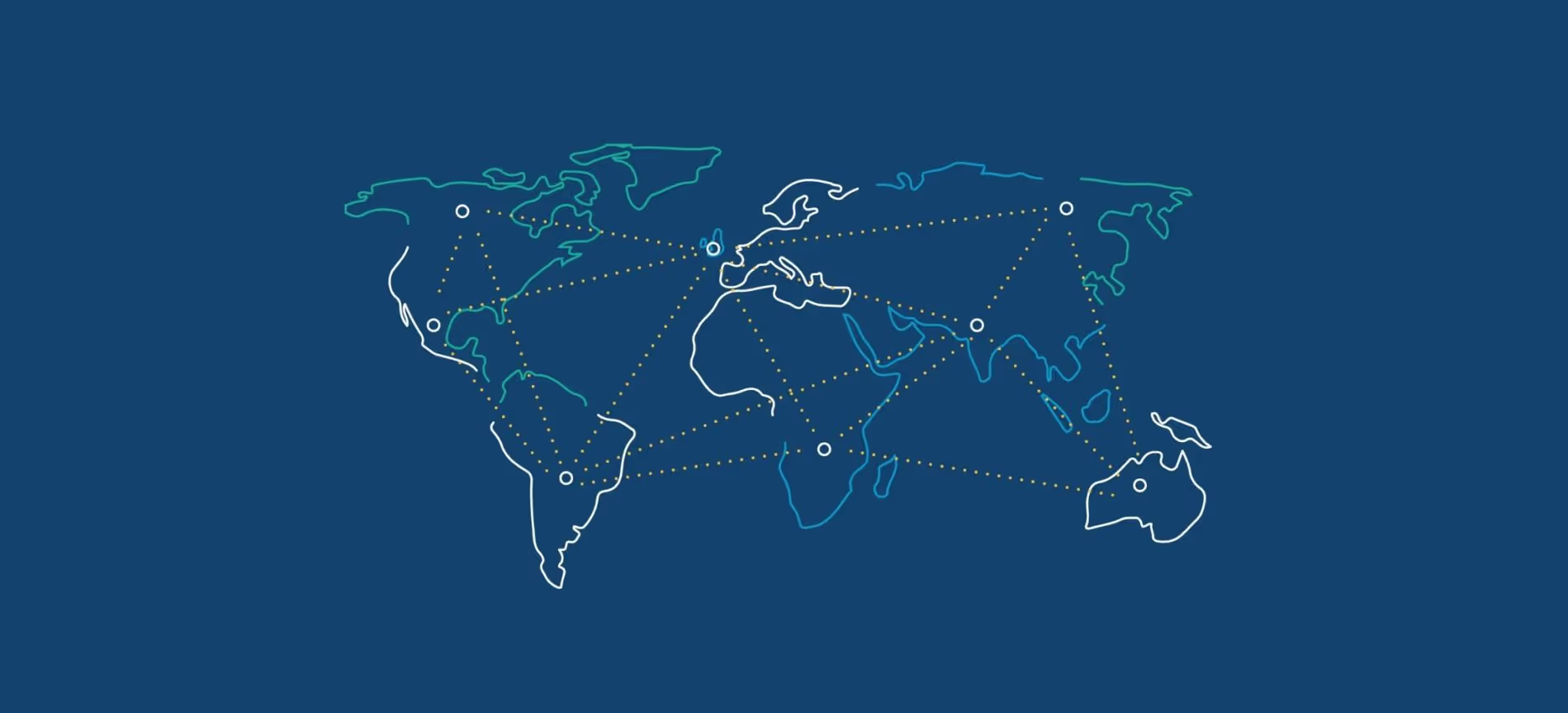Humanitarian Innovation Forum 2025
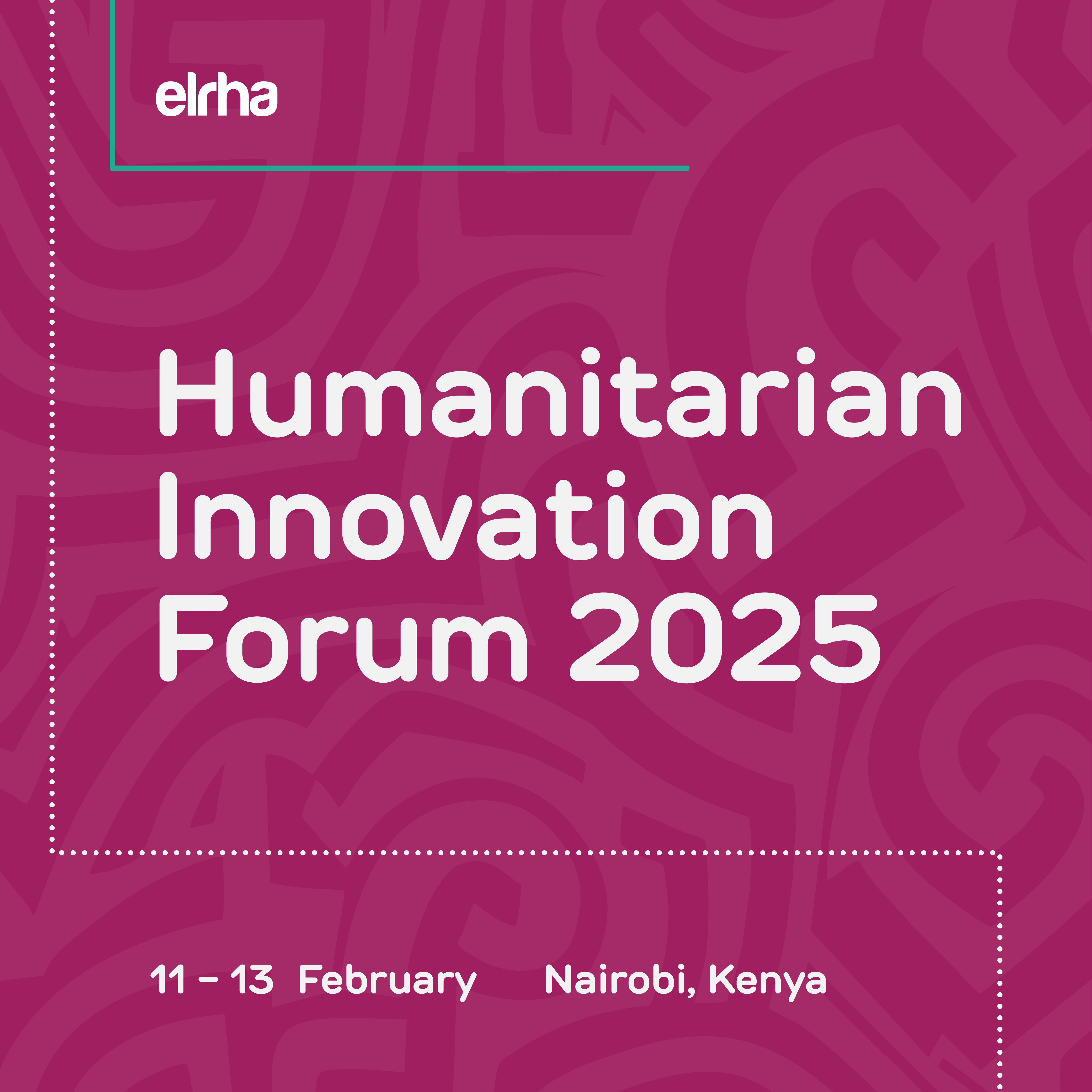
In February 2025, we hosted the Humanitarian Innovation Forum in Nairobi, Kenya. This collaborative and co-created event brought together a diverse group of innovators, decision-makers and funders to tackle some of the most pressing humanitarian challenges facing the world today.
Over three days, we convened a passionate group to consider not just what we innovate, but how and why. They explored transformative solutions, developed shared ambitions and forged lasting connections – continuing the work to ensure innovation delivers real impact for people affected by crises.
Against a backdrop of growing global humanitarian funding challenges, these discussions felt more urgent than ever. Through deep engagement and a commitment to practical outcomes, the Forum laid the foundation for a collective movement to strengthen humanitarian innovation systems.
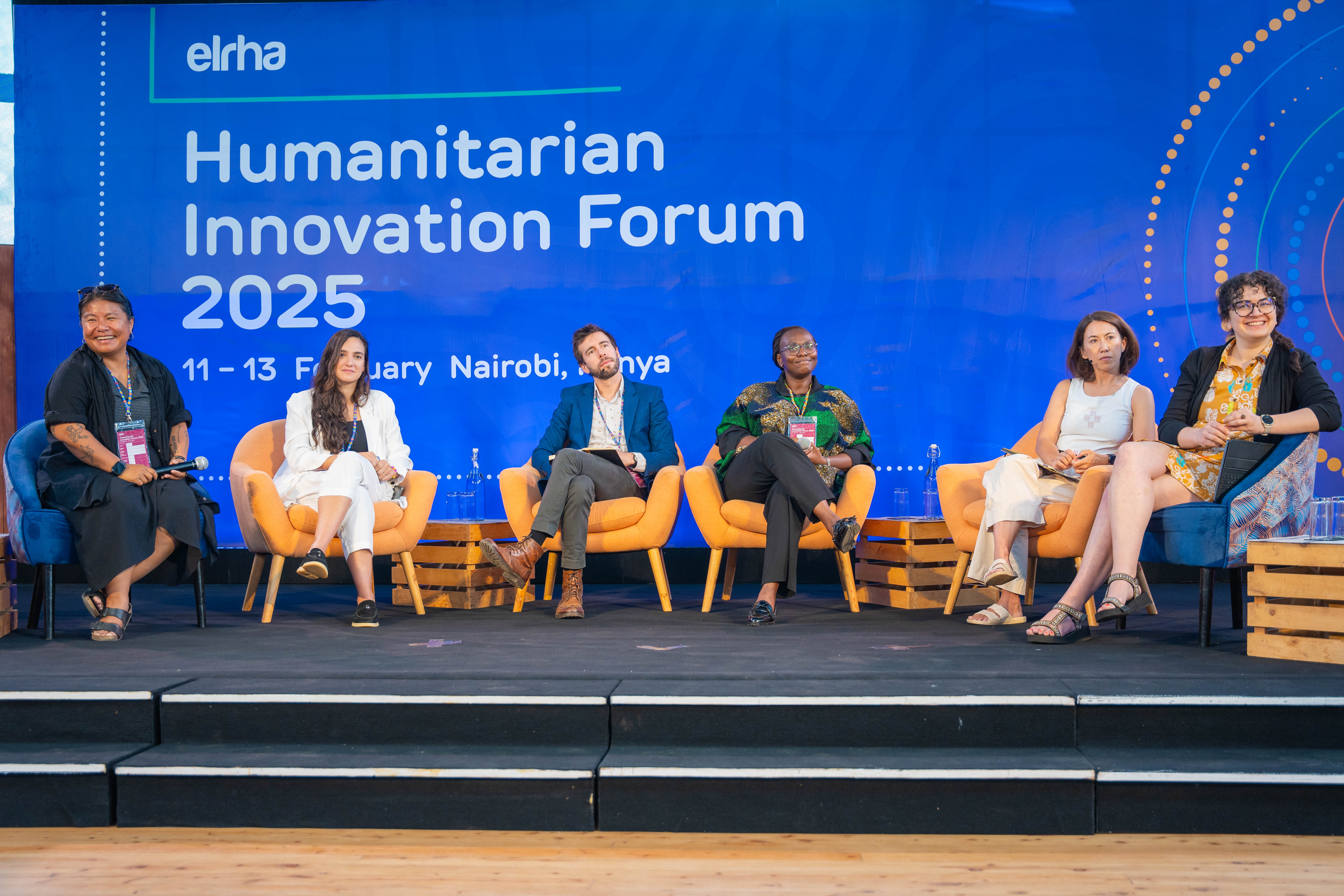
The Forum also served as a platform to showcase impactful innovations, from reproductive rights and menstrual health solutions to safe water tools and efforts to bridge the humanitarian digital divide. These discussions highlighted a key question: should the focus be on scaling what works, or is it more important to understand what works at scale?
Sessions were designed to drive action rather than just discussion. Through dynamic, rotating conversations, participants collaborated to co-develop practical, scalable solutions. A fireside chat with innovator and refugee leader Samuel Binja Cimanuka opened the Forum and set the stage for a deeper exploration of community-led innovation models.
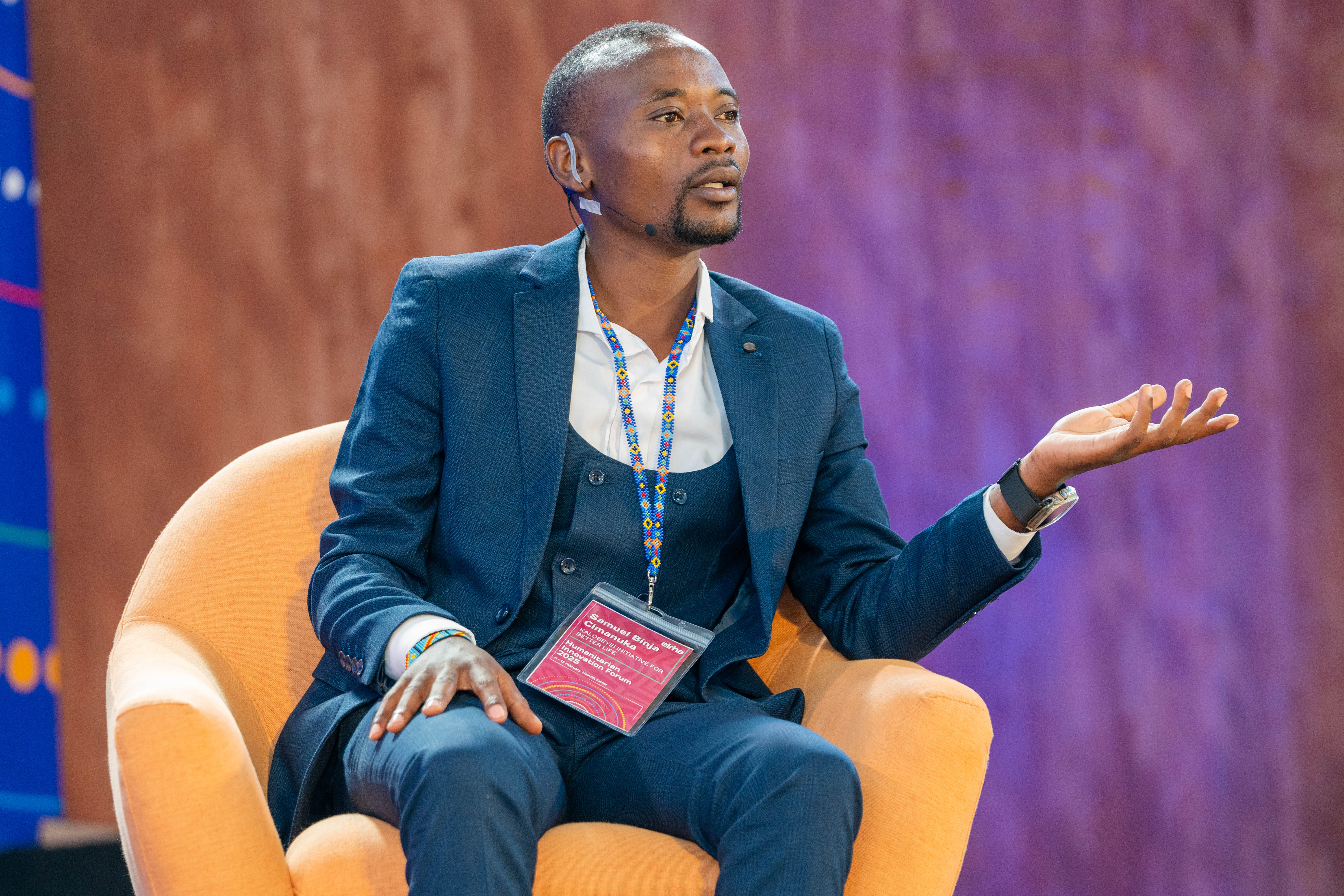
Key themes
Through wide consultation with humanitarian innovation stakeholders, four core themes emerged as the most pressing areas for exploration:
[.slimline-cta-box][.slimline-cta_heading] Localisation and power dynamics [.slimline-cta_heading][.slimline-cta_paragraph] The forum highlighted the need to transfer innovation ownership from global to local actors, proposing tangible strategies to shift power and centre community leadership. [.slimline-cta_paragraph][.slimline-cta-box]
[.slimline-cta-box][.slimline-cta_heading]The right problems[.slimline-cta_heading][.slimline-cta_paragraph]Participants examined whether humanitarian innovation is addressing the most critical needs of affected communities or if institutional and funding constraints are distorting priorities.[.slimline-cta_paragraph][.slimline-cta-box]
[.slimline-cta-box][.slimline-cta_heading]The boring revolution[.slimline-cta_heading][.slimline-cta_paragraph]Operational challenges such as compliance, procurement, and data governance often limit innovation. Discussions explored how these processes can instead be leveraged to enable more effective humanitarian solutions.[.slimline-cta_paragraph][.slimline-cta-box]
[.slimline-cta-box][.slimline-cta_heading]From pilot to practice[.slimline-cta_heading][.slimline-cta_paragraph]Moving beyond proof-of-concept, the forum tackled the challenge of scaling innovation, with a focus on financial and operational sustainability over rapid, unchecked expansion.[.slimline-cta_paragraph][.slimline-cta-box]
These conversations were shaped by insights from a diverse range of voices, with expert-led sessions that prioritised experience over seniority. Elrha facilitated discussions to ensure a wide range of perspectives were heard and acted upon.
"Such an amazing platform, safe space, and network. Elrha is leading the conversation on humanitarian innovation." – Samuel Binja Cimanuka, participant and speaker.
"It was encouraging to see how innovative financing for social impact has developed over the past 10 years. Elrha, well done for convening and curating such an interesting group of participants. The highlight of my week was seeing how local entrepreneurs and innovators are pushing the boundaries of business model innovation in low-resource and conflict environments." – Ian Gray, participant.
Video highlights
Watch recorded discussions, workshops, masterclasses and interviews. Take a look at the full playlist on Vimeo.
Lasting impact
Participants didn’t just discuss challenges – they co-created solutions. The insights generated from the Forum will feed into broader efforts to strengthen how humanitarian innovation is approached, funded and scaled.
The event culminated in a collective draft manifesto, crafted by participants – including practitioners, inventors, entrepreneurs, policymakers and funders – to guide actions beyond the forum. This manifesto will serve as a living document, ensuring that the commitments made in Nairobi translate into real-world impact.
[.slimline-cta-box][.slimline-cta_heading] Humanitarian innovation manifesto [.slimline-cta_heading][.slimline-cta_paragraph] Watch this space in the coming weeks – we’ll be publishing the first working paper summarising those ideas and action recommendations. [.slimline-cta_paragraph][.slimline-cta-box]
The insights and connections from the Humanitarian Innovation Forum have the power to shape the future of humanitarian action. Now is the time to translate discussions into action.
Revisit key discussions by exploring resources from the Forum to deepen your understanding and apply the insights to your work:
[.slimline-cta-box][.slimline-cta_heading]Provocation papers[.slimline-cta_heading][.slimline-cta_paragraph]Read expert perspectives on the biggest challenges and opportunities in humanitarian innovation.[.slimline-cta_paragraph]Provocation paper: The boring revolution[.slimline-cta_paragraph][.slimline-cta_paragraph]Provocation paper: Localisation and power dynamics[.slimline-cta_paragraph][.slimline-cta_paragraph]Provocation paper: The right problems[.slimline-cta_paragraph][.slimline-cta_paragraph]Provocation paper: From pilot to practice.[.slimline-cta-box]
[.slimline-cta-box][.slimline-cta_heading]Session briefs[.slimline-cta_heading][.slimline-cta_paragraph]Explore the context and background to key discussions.[.slimline-cta_paragraph]Session brief: The boring revolution.[.slimline-cta_paragraph][.slimline-cta_paragraph]Session brief: Localisation and power dynamics.[.slimline-cta_paragraph][.slimline-cta_paragraph]Session brief: The right problems.[.slimline-cta_paragraph][.slimline-cta_paragraph]Session brief: From pilot to practice.[.slimline-cta-box]
[.slimline-cta-box][.slimline-cta_heading]Slide decks[.slimline-cta_heading][.slimline-cta_paragraph]Revisit key presentations shared during the Forum.[.slimline-cta_paragraph]Workshop: How to use futures and foresight for humanitarian innovation[.slimline-cta_paragraph][.slimline-cta_paragraph]Masterclass: Alternative financing for innovators[.slimline-cta-box]
The Forum in figures
Thank you to all participants who shared their feedback and reflections. Highlights include:
- 20% of participants were local innovators – the rest were a diverse mix of humanitarian organisations, funders, and infrastructure organisations involved in innovation
- Overall facilitation scored 4.87/5 and session facilitation scored 4.66/5
- The venue scored an unprecedented 4.95/5
- 98% of participants indicated they made valuable new connections that could translate into partnerships
- 91% of participants are interested in involving their organisations in follow-up work
- 76% would like the next Forum to be in–person, and 24% preferred hybrid
With thanks to Response Innovation Lab for their partnership on the Forum and to our donors the UK Foreign, Commonwealth and Development Office and Norway.
See more key moments and highlights from the Forum. Browse photos.
